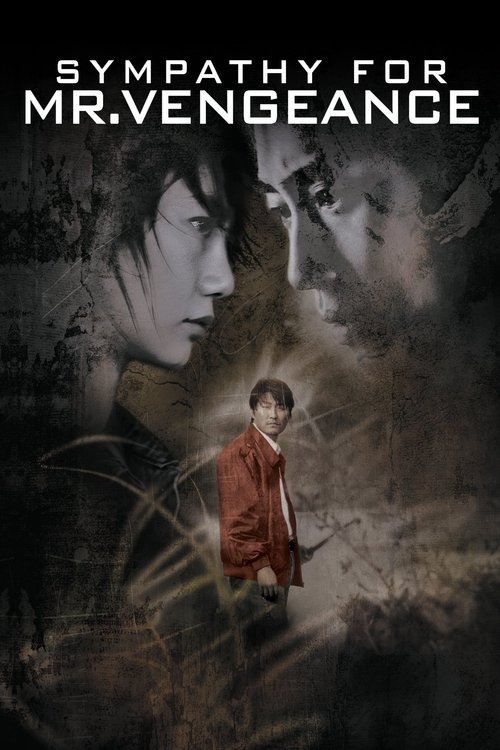
Title: Sympathy for Mr. Vengeance
Year: 2002
Director: Park Chan-wook
Writer: Lee Mu-yeong
Cast: Song Kang-ho (Dong-jin),
Shin Ha-kyun (Ryu),
Bae Doona (Yeong-mi),
Im Ji-eun (Sister),
Han Bo-bae (Yu-Sun),
Runtime: 129 min.
Synopsis: A deaf man and his girlfriend resort to desperate measures in order to fund a kidney transplant for his sister. Things go horribly wrong, and the situation spirals rapidly into a cycle of violence and revenge.
Rating: 7.458/10
The Silent Scream of Vengeance: Park Chan-wook’s Brutal Ballet
/10
Posted on July 18, 2025
Park Chan-wook’s Sympathy for Mr. Vengeance (2002), the opening salvo of his Vengeance Trilogy, is a raw, unflinching descent into the moral quagmire of retribution, distinguished by its stark refusal to offer easy catharsis. The film’s power lies in its direction and cinematography, which transform Seoul’s industrial underbelly into a claustrophobic stage for human desperation. Park’s meticulous framing often using tight, asymmetrical compositions mirrors the characters’ entrapment, while the muted color palette of grays and blues underscores their emotional desolation. A standout sequence, where Ryu (Shin Ha-kyun) buries his sister’s body, uses long, unbroken takes to force the audience into complicity with his grief, the camera lingering like an unblinking witness. This is not mere stylistic flourish; Park wields visuals as a narrative scalpel, cutting into the psyche of both character and viewer.
The screenplay, co-written by Park, is a study in economy, prioritizing subtext over exposition. Ryu, a deaf-mute factory worker, and his girlfriend Yeong-mi (Bae Doona) navigate a world where systemic indifference fuels their tragic choices. The script’s strength is its refusal to moralize; it presents vengeance as a primal impulse, neither glorified nor condemned, but inevitably destructive. However, the narrative occasionally stumbles in its second half, where the proliferation of perspectives dilutes the intimacy of Ryu’s arc. This shift, while ambitious, risks alienating viewers emotionally invested in the protagonist’s quiet anguish.
Acting is another pillar of the film’s impact. Shin Ha-kyun’s performance as Ryu is a masterclass in physicality, conveying rage and sorrow through subtle gestures a clenched jaw, a trembling hand since his character cannot speak. Bae Doona’s Yeong-mi injects a volatile mix of idealism and recklessness, her anarchic energy a foil to Ryu’s stoicism. Song Kang-ho, as the bereaved father Dong-jin, brings a restrained intensity that grounds the film’s escalating tragedy. Their performances elevate a potentially melodramatic plot into something visceral and human.
If the film falters, it’s in its pacing, which can feel uneven as Park juggles multiple threads. The music, sparse and industrial, complements the mood but occasionally fades into the background, missing opportunities to amplify emotional peaks. Yet these are minor quibbles in a work that dares to confront the viewer with the futility of revenge. Park’s Seoul is not just a setting but a character an unforgiving machine that grinds down its inhabitants, leaving only echoes of their pain.
0
0
